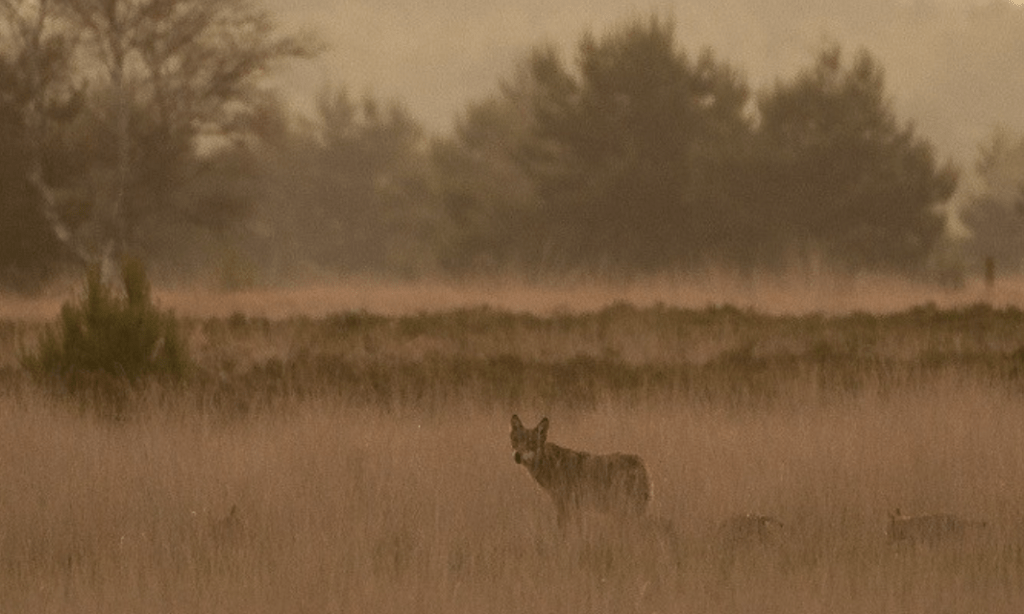In only a short amount of time, 170 new applications for the installation of wolf-proof fencing were submitted, according to Flemish Minister of Environment Zuhal Demir.
Demir was answering questions in the Flemish parliament regarding the requests, which come at a time when protections for the species are facing backlash in Belgium.
An increasing number of wolf attacks on cattle have put farmers and equestrians on edge, and Demir now says that the existing protocol for dealing with wolves is being evaluated ahead of a new consultation with stakeholders on 12 October.
“There is fear in the field,” said Tinne Rombouts (CD&V), according to the Flemish infocentre for agriculture and horticulture (VILT).
Rombouts wanted the Minister to go further than installing wolf-proof fencing, advocating for using tracking devices and a warning system, or looking into whether or not wolves can be relocated to less populated areas.
Other members of the party propose fencing in the wolves, not the fields.
Meanwhile, a member of Open Vld said that “alternatives should urgently be examined to strengthen the support base for the wolf.”
Demir has already said that several proposals aren’t feasible.
“It ‘s proposed to fence off the territory of the wolf, but that’s not legal,” Demir said. “That is not allowed. And what are you going to do if a wolf arrives from Germany or the Netherlands?”
She said that relocating wolves or removing them is only possible after all preventative measures are taken, “but in the areas concerned, only 9 percent have a wolf-proof fence.”
She also added that last week’s media coverage and attention to the wolf issue was what led to the 170 applications for such wolf-proof fences.
But installing such fences isn’t easy, or cheap.
The Wolf Fencing Team (WFT) is working hard to expand in order to be able to meet the additional requests, but Jan Loos of the Welkom Wolf organisation tempered the expectations.
“The farmers and hobbyists themselves will have to put up the majority of the fences,” he said. “With only the volunteers of the Wolf Fencing Team, we will not be able to get there.”
Related News
WTF, which is an initiative of Natuurpunt and WWF, is subsidised with €60,000 that they use to employ one full time coordinator. The rest of the operations are handled by volunteers.
Since its launch in the summer of 2019, the WFT has helped 170 livestock farmers, VILT reports, a number equal to the amount of new applications.
“The most important need of livestock farmers who come to us is for information: what is a wolf-proof fence, all kinds of aspects concerning the installation of electric fences, what is needed in my specific situation, which subsidies are available,” said Diemer Vercayie of the Wolf Fencing Team.
“After each visit, we prepare an extensive file for the farmer with a clear step-by-step plan. In the past coronavirus year, 4 out of 5 livestock farmers found this sufficient to continue on their own. At 1 out of 5 farmers, we jumped in to help with the installation of the fence with our volunteers.”
Figures on how many kilometres of wolf-proof fence were installed by their volunteers are not yet available from the Wolf Fencing Team, VILT says, but the challenge is huge.
The Flemish government estimates that 2,000 hectares of pasture land in wolf territory alone must be protected, for an expected cost of between €420,000 and €480,000 per year if done at the rate of 200 hectares annually.
Jan Loos of Welkom Wolf warned the government against creating the expectation that WFT will make Limburg “wolf-proof.”
“They have the expertise to say what a wolf will do and what not, but their volunteers are mainly people from the environmental movement or biology students who don't necessarily have much experience with placing fences,” said Loos.
“That expertise is in the first place with the farmers and hobby farmers themselves, they are the ones who will have to protect their animals, admittedly with advice.”
On Friday, a symbolic torchlight procession of protest against wolves will take place in Oudsbergen.
They originally planned to use real torches, but the mayor disallowed that.

